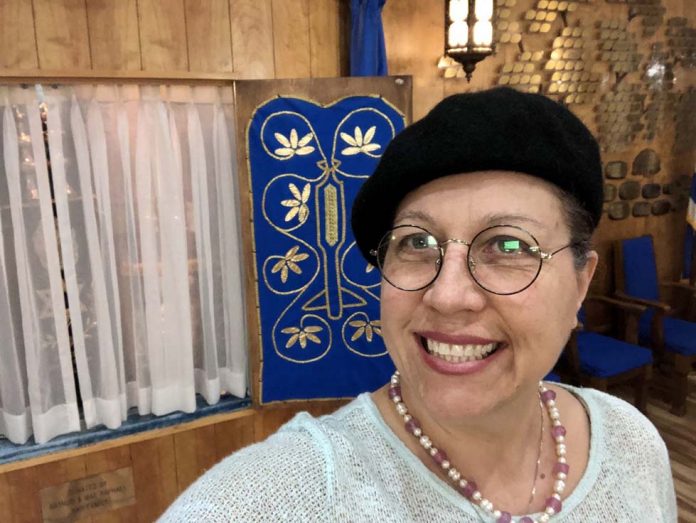Hefsiba “Jen” Cohen, Special to Valley News
In this week’s Torah portion, Moses gives ancient Israel two choices, each with contrasting consequences. It wasn’t a trick question by any means: choose goodness and be blessed or choose disobedience and be cursed. The name of the scripture portion, “Re’eh,” literally means “see.”
Moses said, “See, this day I set before you a blessing and a curse: blessing, if you obey the commandments of the LORD your God that I enjoin upon you this day; and curse, if you do not obey the commandments of the LORD your God….” in Deuteronomy 11:26.
It all seems so simple, but human nature often complicates things that were never intended to be difficult. Even when our desire is made plain, we still want at least a presentation of other options on the table.
I have a dear friend who illustrates this very concept. He enjoys going to ice cream parlors that have a very extensive variety of flavors. He enjoys looking at all the different flavors and tasting the unique and exotic. The choosing is just as much fun as the ice cream it would seem, but we always laugh when he consistently ends up just choosing vanilla. He knows from the beginning that vanilla is his favorite and will likely win out, but he also appreciates the option to make that choice.
Ancient Israel, as it would seem, wasn’t much different. Choosing a “blessing” over a “curse” was the obvious choice, but where was the satisfaction in making a choice without being given at least an opposing option? So, Moses presented both contrasts and gave them that power – the mighty power of choice.
The rabbis taught that those words in Deuteronomy depicted a scenario in which God was not intending to bring harm, or “curses,” to ancient Israel, but the wording was used to emphasize the “right way” to choose for a life and path of blessing.
Jewish commentary explained further, using a metaphor for the illustration, likening the two choices to a forked path. One path would have a clear and easy beginning but would become increasingly choked in thorns until passing was very difficult, a curse. The other path would have difficulty in the beginning but would ultimately be smooth as it went on, a blessing.
Today, people often blame the negative things that happen in their lives on others or they blame their hardships and failures simply on the curse of “bad luck,” when in fact, it was most likely their very choices that brought them to the situations that frustrate them. They might not have a mighty prophet like Moses highlighting their choices in life, but nevertheless, people are faced with choices daily, and like ancient Israel, they also reap the consequences of their choices.
This Torah portion “Re’eh” packs a powerful and timeless lesson, reminding people to slow down when faced with choices in life, ensuring that they are indeed choosing the ways of God’s blessing, paths that will ultimately bring goodness, success and health into their lives, even if such a choice brings hard work and is not initially easy or satisfying. Likewise, it also reminds people that they should shun the impulse to make hasty choices in favor of ease and convenience, when in the long run, they might be regretful.
Hefsiba “Jen” Cohen, Ph.D., is a rabbinical scholar and adult educator.
Want to learn more about Judaism? Visit Congregation B’nai Chaim, which is located at 29500 Via Princesa in Murrieta. For more information, visit http://www.bnaichaim.com or find them on Facebook.









